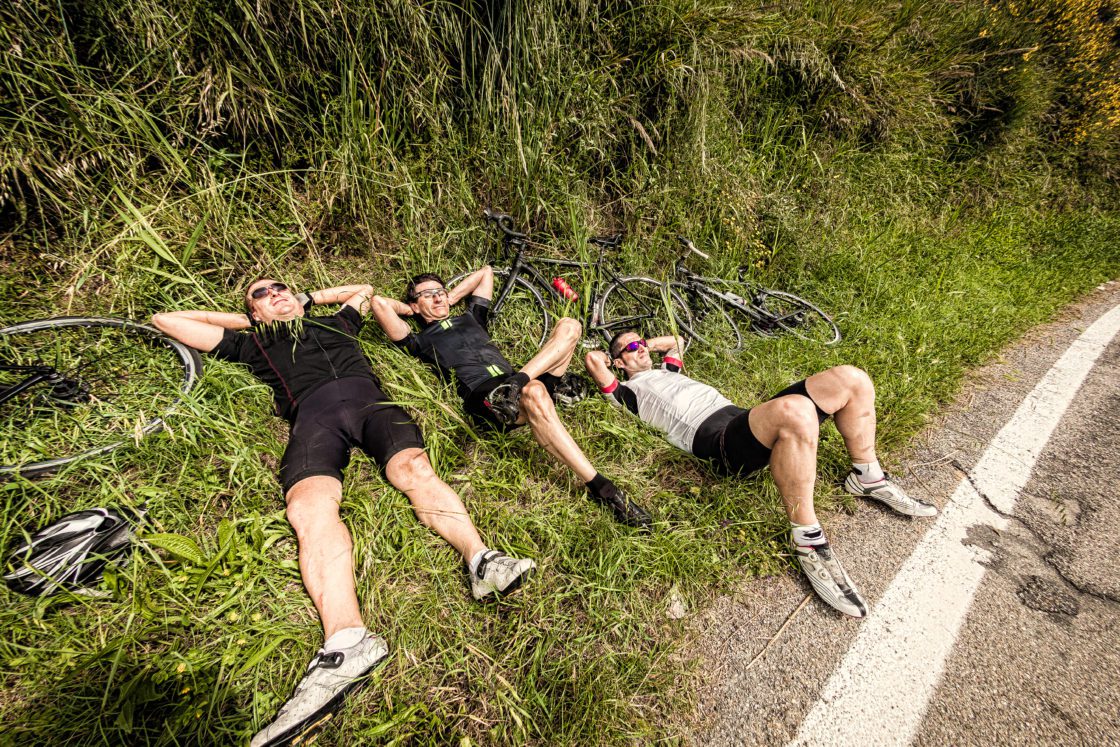The importance of sleep for your cycling performance
Tips from a specialist for better sleep since getting a good nights rest is just as important as training and nutrition

Sleep is important, but unlike fancy gadgets and hacks, it’s boring. We sleep every night. So when an expert tells you that sleep is important, it doesn’t seem that significant because you do it already. But in the past year, sleep has become one of the biggest topics in sports science. It’s also an area on which professional sports teams are spending time and money on to gain an edge on their competition. But does this mean you or I should look more closely at our sleep? With longer work hours, more screen time and television binge watching featuring in most of our lives, it’s more than likely that we could all gain a few watts by learning to sleep better.
RELATED:Is caffeine slowing you down?
Amy Bender is a sleep specialist who works with elite athletes at the Centre for Sleep & Human Performance, a medical sleep lab and testing facility in Calgary. “Sleep was once overlooked but is now becoming one of the pillars for athletic performance, alongside training and nutrition,” she says.
As a coach and athlete, I have come to appreciate how much my sleep affects my own performance and also how limited the busy athletes I work with can be by their limited daily shut-eye. When we sleep, we absorb the training we’ve done. Getting rest also helps us focus on work and our effort during workouts and races. “A shorter nap, roughly 20 minutes, before training or competition will likely boost alertness and performance for up to four hours after the nap. A longer nap, about 90 minutes, after a training session will help you recover and repair the body by allowing growth hormone to be released when you reach deep sleep during the longer sleep period,” Bender says.
A specialist’s tips for better sleep
To improve the quality of your sleep, Amy Bender has the following seven bits of advice:
- Avoid caffeine after 12 p.m.
- Limit alcohol consumption to one drink with dinner, at least two hours before bed.
- Keep away from electronics and bright lights in the hour before bed to avoid stimulation from the light and/or the content.
- You don’t need to be worrying about emails before bed.
- Don’t eat a heavy meal within two hours of bedtime.
- Keep a consistent bedtime and wake time.
- Perform relaxing activities before bed (like foam rolling or reading paper books) to wind down before trying to sleep.
- Make your bedroom for sleeping and for time with a loved one only. Keep work, phones and television out of the bedroom, even during the day, so that you don’t associate your bed with being awake or working
Does that restless night with fitful dreams of showing up at the start line sans chamois mean a bad result on race day? Bender says, “We don’t believe a bad night’s sleep is a big deal unless it is extreme, like pulling an all-nighter. Banking sleep by getting extra sleep the weeks before an important event or race can help mitigate the negative effects of any sleep disruption the night before due to anxiety and nerves.”
RELATED: How beer affects your cycling fitness
So if the night before doesn’t matter but the weeks ahead do, how much do we actually need? Bender suggests we need seven to nine hours of sleep generally. Athletes, especially those doing endurance sports, will be on the higher end of the range. Female and younger athletes also tend to excel with longer sleep durations. “The problem is that we are not good judges of how we are performing on less sleep,” Bender says. “You may think you need less but, in reality, the sleep-deprived brain is not a good judge.”
As an endurance coach, I keep a close eye on clients’ performance numbers (wattage) and race results. They should trend upward. I also check if athletes feel rested each day. Do they fall asleep unexpectedly, while watching TV or even during a meeting? Are they consuming too much caffeine or other stimulants? If any of these metrics are off or if things are trending negatively, then we will try improving sleep hygiene. You, too, should keep an eye on your shut-eye.
